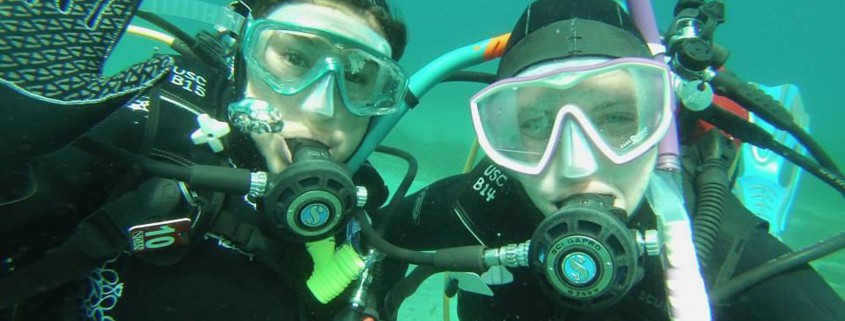USC Wrigley Institute celebrates 20 year anniversary
The USC Wrigley Institute for Environmental Studies celebrated its 20th anniversary at the Los Angeles Yacht Club in San Pedro last week.
This year marks the 20th anniversary of the Wrigley Institute as well as the 50th anniversary of the Wrigley Marine Science Center on Catalina Island. The Wrigley Institute was founded in 1995 and is a forum for marine and environmental research. Robert Woolley, director of development at the Wrigley Institute, said the institute would not exist today without the Wrigley family’s generosity.
“The institute itself came out of the Wrigley family’s dedication to environmental awareness and environmental issues, particularly around water issues, that needed addressing,” Woolley said. “I view myself as a steward of their gift and their involvement, and it’s a thrill for me to work for them in that capacity and what was set out 20 years ago by doing what I do.”
The event, which was held on Thursday evening, featured a panel with Wrigley Institute Inaugural Director Dr. Tony Michaels as well as the fourth and current director Roberta Marinelli, who took over in July of 2011. Michaels said that the institute’s current goals are to promote environmental research.
“The institute’s goal is to be a source of environmental information, which includes support of basic research both in the natural sciences but also reaching more broadly into the social sciences,” Michaels said. “To be an effective communicator of that research to both scientists, policy makers, and the broader maker so that wise decisions regarding environmental problems can be made.”
The Wrigley Institute conducts extensive research to solve today’s environmental problems. For example, a few of their current projects include testing the use of bacterial metabolism in microbial fuel cells as an energy source to break down human and industrial waste without the pollution and contamination that are biproducts of most widely used energy sources.
Woolley said the ability of the institute and the marine science center to study the large variety of climates in Los Angeles County sets them apart from similar organizations in other locations.
“When you look at the institute itself, we have a footprint here on campus, we have a footprint down in the harbor with the Southern California Marine Institute, and then we have the marine lab on Catalina which is adjacent to preserved land stewarded by the Catalina Island Conservancy, and then the Big Fisherman’s Cove is a marine protected area,” Michaels said. “We’re the only institute that can take advantage of this dramatic change of environments within a 22-mile stretch.”
Marinelli stressed that she hopes the event would help raise awareness of the interconnectivity of our actions and how the things that we do might have environmental side effects that we do not consider.
“I think we all think about things like, ‘If I let my tap run water goes down the drain,’ but we don’t necessarily think about what that means for all of the other things that we think we should have in order to live,” Marinelli said. “So recognizing that interconnectivity and understanding the real imperative to reimagine how we do things is the message that we need to put forward.”
Woolley said that he hopes the event helps raise the profile of the institute among students at the university.
Woolley said that the Wrigley Institute has been successful in promoting interdisciplinary cooperation and that the institute actively seeks students of business and philosophy and other fields in order to objectively look at the research from multiple perspectives, not just a scientific one.
“We’re still a best-kept secret of the university. We have a number of students who actually go and study on the island each spring, and that’s an opportunity that I think not many students know,” Woolley said. “It involves not just the sciences, but the people who interpret the sciences and who are going to implement the policies that are interpreted from those sciences.”

